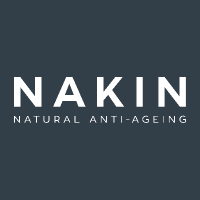How Long Does it Take Our Skin Cells to Renew

Our skin is made up of cells and when we use face products like our natural anti-ageing range we are affecting the health and turnover of those cells. Our face cleansers help to remove dead skin cells and our treatments and creams then seep into the healthy skin cells and work to nourish, improve, and hydrate.
The process of skin cell regeneration is a dynamic and continuous cycle that typically takes around 28 to 45 days in a healthy adult. This cycle involves the formation of new cells in the epidermis, the outermost layer of the skin. These cells gradually move up to the surface, where they eventually die and are sloughed off. Factors such as age, nutrition, skincare, and overall health can influence the rate of skin cell turnover. Younger individuals tend to have a faster renewal process, while the cycle slows down with age, sometimes extending to 45 days or more. Regular exfoliation, a balanced diet, and adequate hydration can promote healthier and more efficient skin cell renewal.
In addition to external factors, internal cellular processes also play a crucial role in skin cell regeneration. One process is the production of collagen and elastin, which are essential proteins responsible for maintaining our skin's structure and elasticity. As we age, our body's natural production of these proteins decreases, leading to fine lines, wrinkles, and sagging skin. Hence, using good face products like ours that stimulate collagen and elastin production can aid in promoting a more youthful appearance.
The environment we live in also affects our skin's ability to regenerate effectively. Exposure to pollutants, UV rays, and other harmful elements can damage our skin cells, making them less efficient in the regeneration process. It is crucial to protect our skin from these external aggressors by using sunscreen, limiting sun exposure, and regularly cleansing our skin to remove any build-up of pollutants.
Other factors such as hormonal changes in our body also influence skin cell regeneration. Hormones like oestrogen can increase the speed of cell turnover, leading to clearer and brighter skin. On the other hand, as we approach menopause, oestrogen levels decrease, resulting in a slower renewal process and potential skin changes such as dryness and dullness.
While genetic factors may play a role in our skin's ability to regenerate, there are many external and internal factors that we can control to promote efficient and healthy skin cell renewal. By incorporating a balanced diet, regular cleansing and exfoliation, adequate hydration and nourishment, and protection from environmental aggressors, we can support our skin's natural regeneration process for a more radiant and youthful complexion. Additionally, understanding the impact of hormonal changes on our skin can also help us adapt our skincare routine accordingly for optimal results.
Taking care of our overall health and well-being is crucial for maintaining healthy-looking skin that glows from within. So, let us embrace these habits and make them a part of our daily routine for beautiful and resilient skin.


Leave a comment